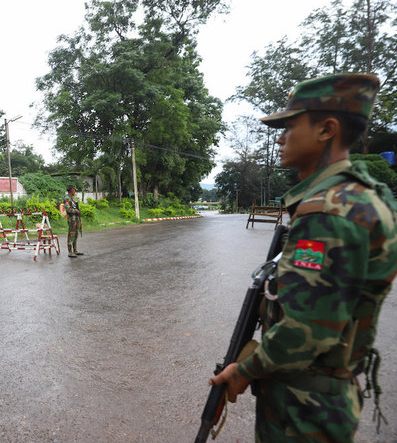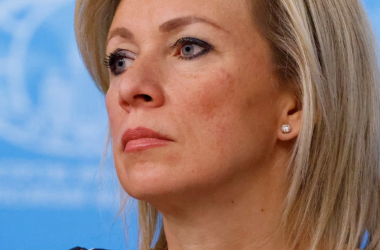China’s special envoy, Deng Xijun, held discussions with Myanmar’s junta chief, Min Aung Hlaing, on Thursday in Naypyidaw to address the escalating conflict along their shared border, according to reports from Myanmar state media. The talks focused on “peace and stability” in the region, particularly in light of recent clashes in Myanmar’s northern Shan state, where ethnic rebel groups have intensified their offensive against the military.
Since late June, the Shan state has witnessed repeated skirmishes as ethnic rebels launched attacks along a crucial trade route to China. These clashes escalated last week when an alliance of ethnic rebel groups successfully seized control of the military’s northeastern command in Lashio, a town with a population of around 150,000. This marked the first time since the 2021 military coup that opponents of the junta have captured a regional command, leading to rare public criticism of the military’s top leadership by some of their own supporters.
During the meeting, Min Aung Hlaing reportedly outlined the junta’s objectives and a five-point roadmap aimed at ensuring peace and stability within Myanmar and along the border area. The Global New Light of Myanmar, a state-run newspaper, highlighted the general’s emphasis on the internal peace process and border security.
China, a significant ally and arms supplier to Myanmar’s junta, is also believed to maintain relations with ethnic armed groups that control territories near the China-Myanmar border. Despite its support for the junta, China’s involvement with these groups reflects its complex and strategic interests in the region.
The recent rebel offensive has also led to accusations from Min Aung Hlaing, who claimed that the alliance is receiving weapons, including drones and short-range missiles, from unidentified “foreign” sources. The ongoing conflict has resulted in numerous civilian casualties, with dozens reported dead or injured by both the junta and local rescue organizations.
Myanmar’s border regions have long been a hotspot for conflict, with various ethnic armed groups fighting for autonomy and control over resources since the country gained independence from Britain in 1948. Some of these groups have provided support and training to newer “People’s Defense Forces,” which emerged to resist the military following its 2021 coup that ousted the government of Aung San Suu Kyi.
As the situation along the border remains volatile, the outcome of the discussions between China and Myanmar will be closely watched, particularly in how they might influence the dynamics of the ongoing conflict.








